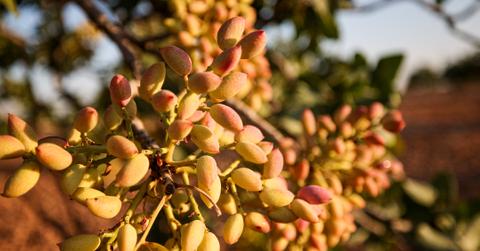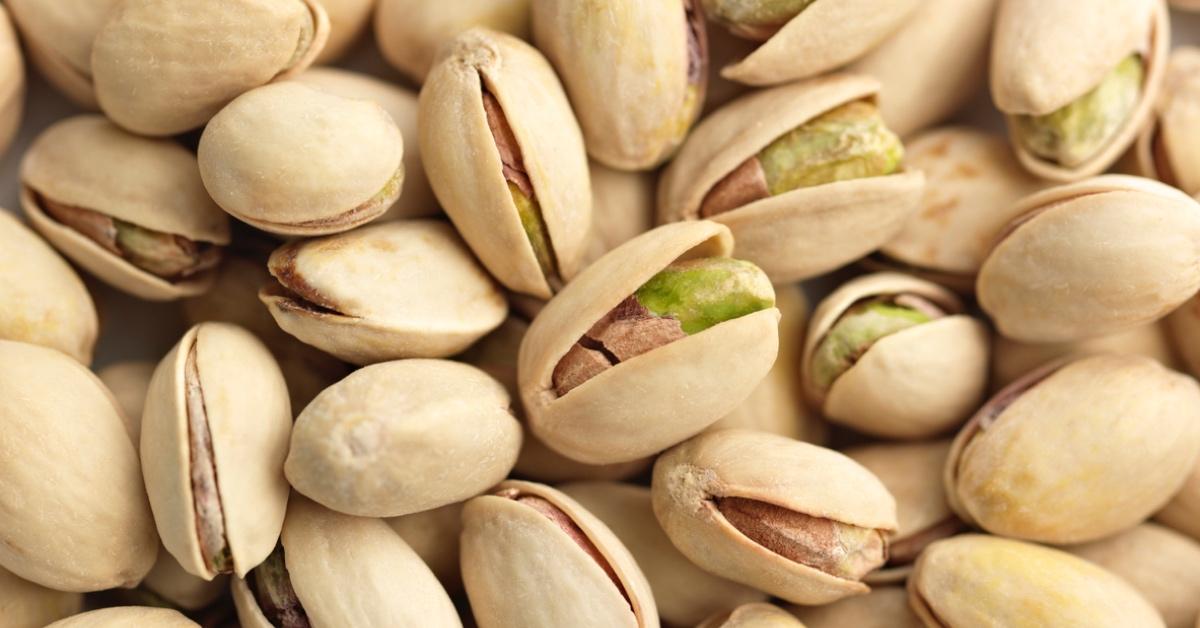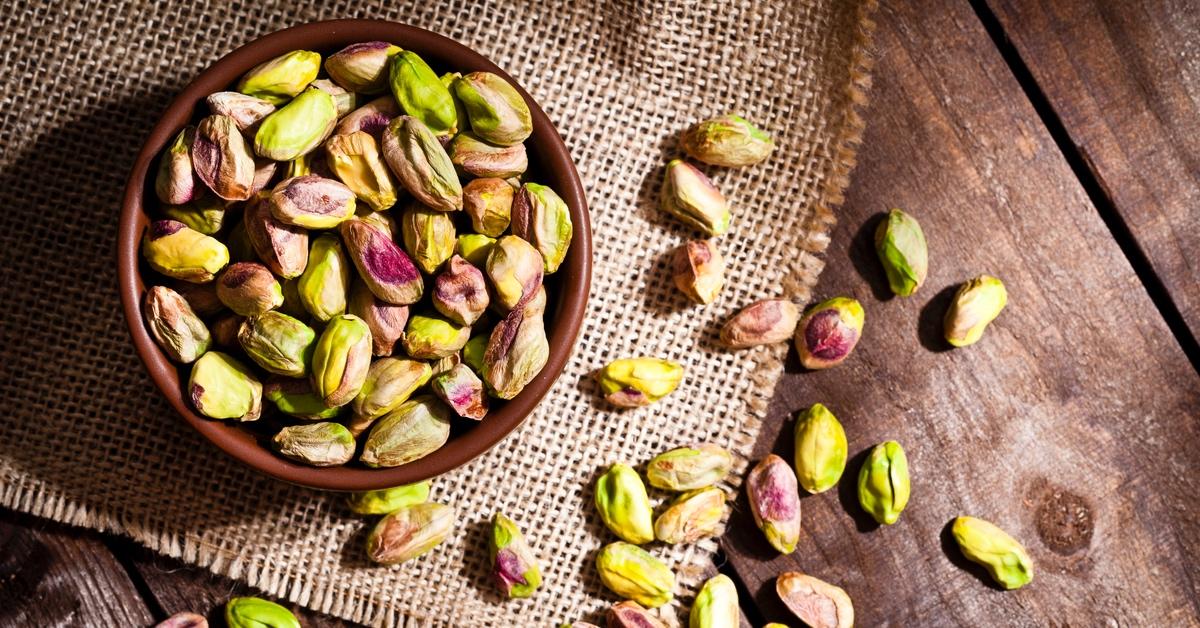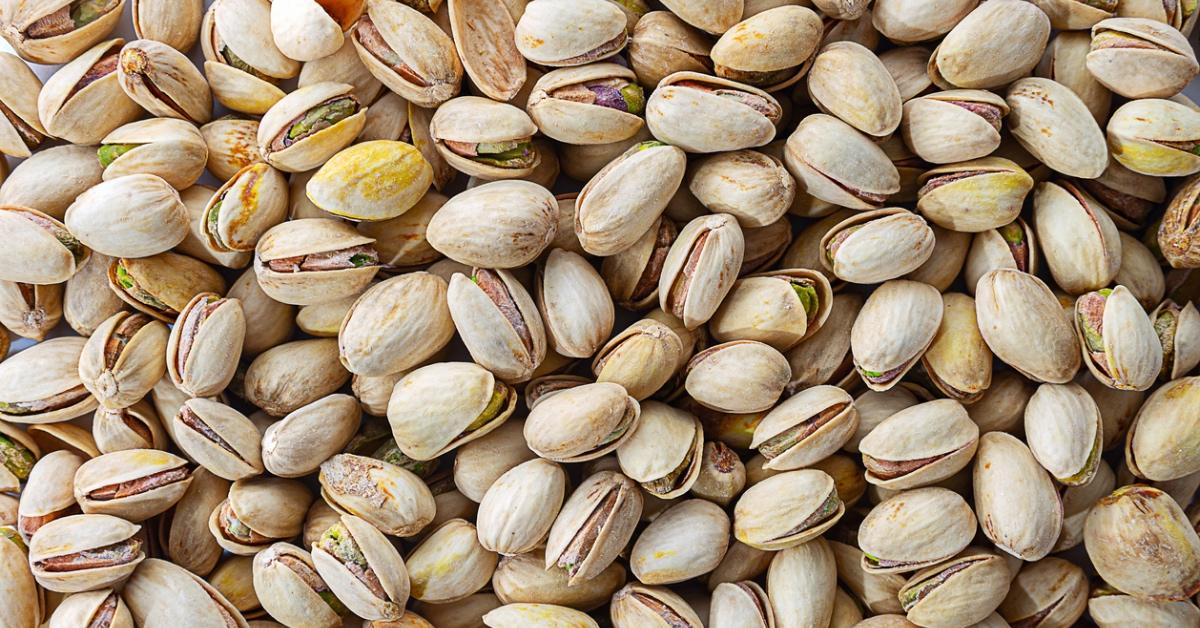High Demand and Hand Labor Made Pistachios Expensive. Should You Buy or Find Alternatives?
Published Jan. 11 2024, 12:28 p.m. ET

There are plenty of options for delicious vegan snacks when your stomach starts growling. Whether you need to eat on the road or at home, nuts and seeds provide essential nutrients and protein that make each bite more fulfilling. So why are pistachios so expensive compared to the other options in the snack aisles of your grocery store?
Read about the popular snack to learn why they cost more than alternatives like peanuts or almonds. You can better plan your grocery shopping and save some money when it’s time to check out.

Why are pistachios so expensive?
Pistachios are expensive because they are in high demand and require primarily human labor to ensure an undamaged harvest, per the American Pistachio Growers. The shells fall away from the green tree nut easily, so machines shaking the pistachio trees easily damage the falling nuts. Human labor costs more than machine labor, per research from the Institute of Electrical and Electronics Engineers.
Machines also take a backseat during sorting. Sorting eliminates items like leaves, bugs, and twigs from a harvest. People need to do this by hand to avoid the damage caused by machines that would otherwise move pistachios at high speeds through machinery.
The tree nuts also utilize lots of water. According to The Gainesville Sun, they require 1.1 gallons of water per pistachio. Farms will pay a higher water bill to produce pistachios, leading to higher price points at the grocery store.

Try these nuts similar to pistachios to save a few dollars.
Almonds are an excellent alternative to pistachios if you want to save money. They cost a record low of $1.10 per pound, as noted by the U.S. Department of Agriculture’s Economic Resource Service. Rocky Mountain IV Medics also notes that almonds include glutathione, which reduces muscle inflammation and improves muscle recovery after workouts.
Peanuts provide a slightly different nutty flavor you can enjoy alongside pistachios and almonds. The U.S. Department of Agriculture reported that peanuts cost an average of 22.3 cents per pound and have been in a long-term downward pricing trend. The nutritious nut includes protein, fiber, fatty acids, and numerous minerals, according to research in Nutritional Epidemiology.

Cashews are another alternative if you want to save money or take a break from pistachios. Like pistachios, cashews contain fiber, fats, protein, and iron, as noted in Nuts and Seeds in Health and Disease Prevention. Statista found they average $11.20 per pound, although many manufacturers sell cashew snack products in smaller, more budget-friendly packages.
Enjoy a healthy and affordable snack.
Pistachios are a tasty treat, but you can add other nuts to your diet if they’re too costly. Consider swapping the occasional pistachio snack with almonds, cashews, or peanuts. You’ll get roughly the same amount of proteins, vitamins, and minerals while saving money.